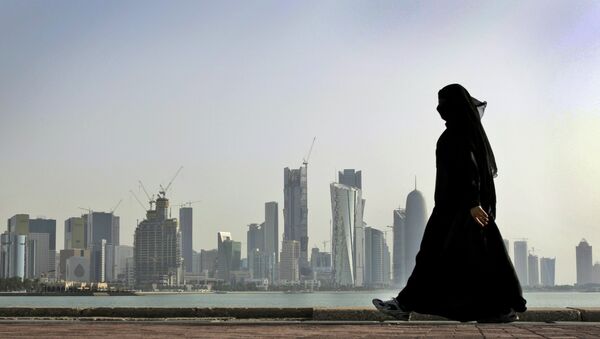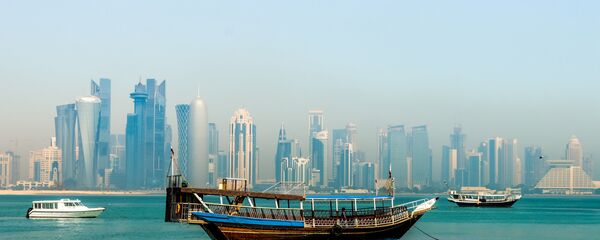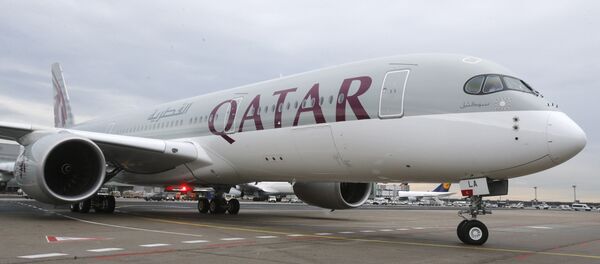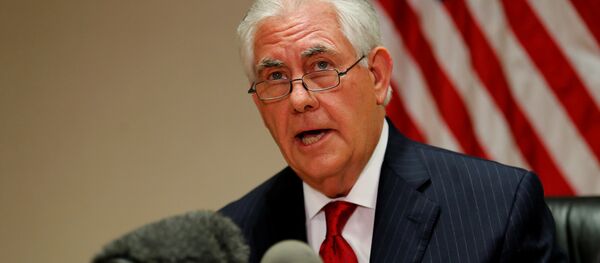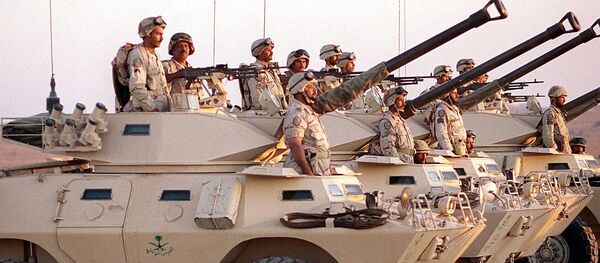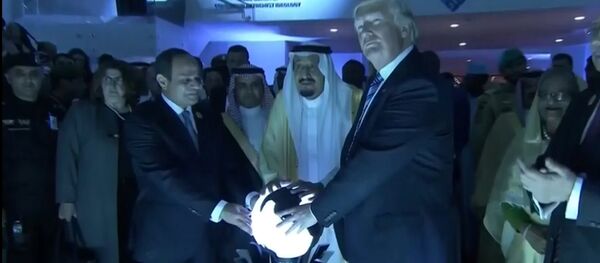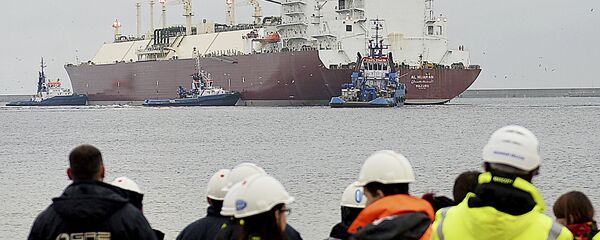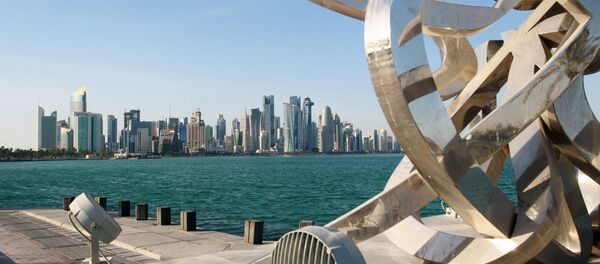All the Persian Gulf Arab monarchies, including Qatar, have been linked to sponsoring terror groups in regime-change proxy wars against neighboring countries. From Iraq, Libya, Syria and Yemen, among others.
For Saudi Arabia and its allies, the United Arab Emirates (UAE) and Bahrain, to suddenly accuse Qatar of singular involvement in terrorism has the clunky sound of hammed up allegation. Something else lies behind the rupture.
This week Saudi Arabia and some of its Gulf neighbors severed transport links to Qatar, a tiny state of less than three million people, jutting out from the Arabian Peninsula. Qatar also shares a land border with Saudi Arabia, which has been closed too. Given that some 40 per cent of food supplies are imported from Saudi Arabia, the restrictions have effectively put Qatar under siege.
The Qatari government has rejected the accusations of destabilizing the region. It says that Saudi Arabia and its neighbors are trying to put the state under “guardianship”.
It is an extraordinary situation. Russia, as well as Turkey and Iran, have urged the Gulf states to resolve their differences through dialogue and to refrain from further escalation.
The United States is especially concerned. It is an ally of all the Gulf Arab states, with a major military base on Qatar’s territory. Indeed, Qatar is the home for US Central Command which covers the entire Middle East. Washington is claiming that its military flights out of Qatar are continuing as normal despite the row. But it is obvious that the US is on edge, fearing the spat could undermine regional operations.
Perhaps the key to understanding what is going on is the mega arms sale that US President Donald Trump pulled off only two weeks ago during a visit to Saudi Arabia. Trump signed a record weapons contract worth $350 billion over 10 years with the Saudi rulers. He also made smaller but still substantial arms deals with the UAE and Bahrain. Notably, Qatar was not reported to have signed up any new US military contracts.
The deluge of American weaponry to Saudi Arabia and its neighbors has brought renewed public focus in the West on violations by the Saudi rulers, both at home and abroad. Those violations include the brutal crackdown against dissidents, the ongoing Saudi-led slaughter in Yemen, and the systematic links between the Gulf states and jihadi terror groups.
Public awareness and anger over Trump and May’s obscene arms dealing with Saudi despots has broken through the official obscurity that usually accompanies this lucrative trade. For example, this week following the terror attack in London, Labour leader Jeremy Corbyn was applauded for raising the issue of how British governments have fueled international terrorism by selling arms to Saudi Arabia and other Gulf despots.
To deflect the mounting public furore over Western weapons dealing, it seems that the Saudi rulers have moved to scapegoat Qatar as the “terror problem”. By blaming Qatar for all the terror ills and instability of the region, the Saudis hope to evade the public heat over their own complicity.
In this vile American and British-backed arms vice, it is necessary to divert public criticism. Qatar, it seems, is the handy scapegoat.
The Saudi-led turning on Qatar is not unprecedented. Despite an image of Gulf cooperation, there is much in-fighting between the oil and gas-rich sheikhdoms, particularly between the dominant Saudi state and Qatar.
Back in 1996, Qatar even accused Saudi rulers of plotting to overthrow its then ruler in a palace coup.
More recently, during the war in Syria, Saudi Arabia and Qatar have weaponized differing proxy militia, with the Saudis sponsoring groups like Ahrar al Sham, while the Qataris have backed Jabhat al Nusra. All such groups are affiliated with the Al Qaeda terror network. But there has been intense rivalry and bloodletting between the groups for influence. This has manifested in geopolitical tensions between Saudi Arabia and Qatar.
Also, while Saudi Arabia has an obsessive paranoid hostility towards Shia Iran, Qatar has shown more willingness for entente.
That has led to accusations from Saudi Arabia that Qatar is somehow colluding with Iran in sponsoring terror groups in the region and destabilizing restive populations in Saudi’s mainly Shia Eastern Province and in Bahrain. Qatar, like all the Gulf Arab kingdoms, is a Sunni Islam state. There is no way that it would engage with Iran to allegedly spread Shia unrest. That’s just Saudi paranoia.
There are also accusations that Qatar-owned Al Jazeera news network is inciting unrest through its broadcasts. The Qataris deny this and say that there was an incident of “cyber hacking” which put out false information purporting as criticism of its neighbors.
The accusations leveled by Saudi Arabia, the UAE and Bahrain against Qatar have been bolstered by Egypt, which alleges that Qatar is a supporter of the Muslim Brotherhood opposed to President Al Sisi. The latter has also been embraced by the Trump administration as a strong leader for future American weapons deals.
A far more plausible reason for the latest war of words is that the Saudis and their cronies are scapegoating Qatar to cover up what is otherwise a grotesque American and British racket of arming despotic regimes.
The views expressed in this article are solely those of the author and do not necessarily reflect the official position of Sputnik.
